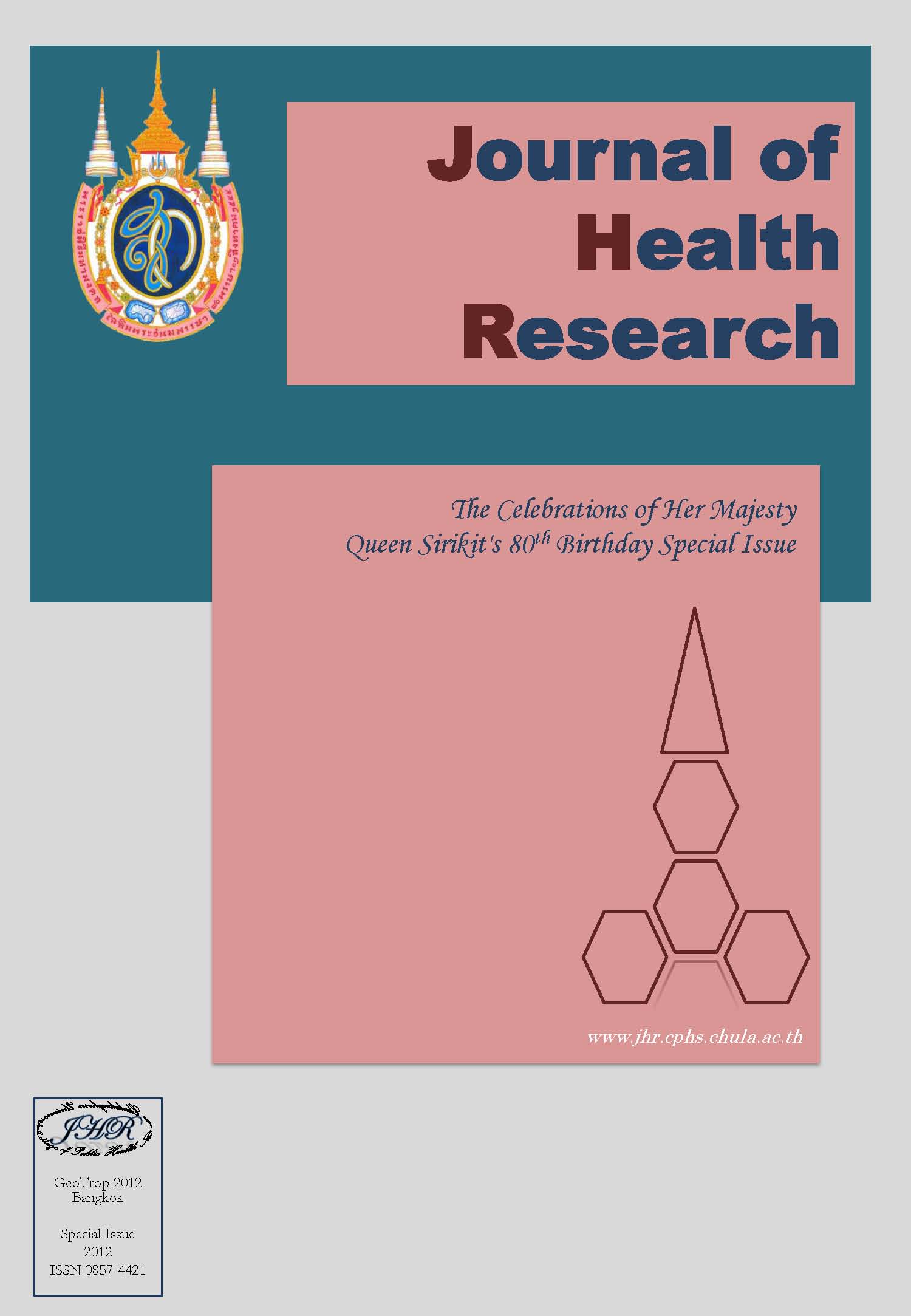Outcome To The New Outpatient Treatment Program On Alcohol Dependence: A Pilot Study
Keywords:
Pilot study, the new outpatient treatment program, alcohol dependenceAbstract
The study aimed to assess the new outpatient treatment program that could help alcohol-dependent patients to reduce or abstain from their alcohol consumption. The experiment was carried out during October 2011 to May 2012 at Mae Sot General Hospital in Tak province, Thailand. Methods: A randomized controlled trial was assigned into the new outpatient treatment program (n=30) or control group (n=31). Using the 4th Diagnostic and Statistical manual of Mental Disorder (DSM-IV) to diagnose alcohol-dependence and the Alcohol Use Disorder Identification Test (AUDIT) to determine the level of alcohol addiction assessed sixty-one alcohol-dependent patients. Questionnaire was used to collect personal data relating to drinking behavior Results: The early findings indicated that the subjects have had drinking problems for a long period of time. They were all diagnosed with alcohol dependence based on the AUDIT scores (26-28 points) and exceeded the standard drinking volume (14 standard drinks per week for males). The dropout rate was approximately 16%. The follow-ups at 1, 2, and 3 months revealed that the patients in the alcohol outpatient program could reduce and abstain the amount of drinking to a greater extent than those in the control group at 3 months follow-up (p-value < 0.05). Conclusion: The alcohol outpatient program can be considered an effective alternative in the treatment and rehabilitation of alcohol addiction. Nevertheless, a home visit, network referral, and community participation should be integrated in order that everyone involved will understand alcohol addiction, a chronic illness requiring continual help.







